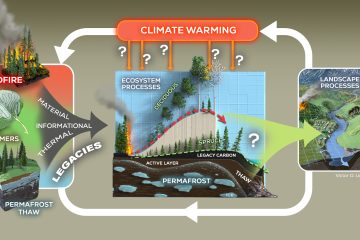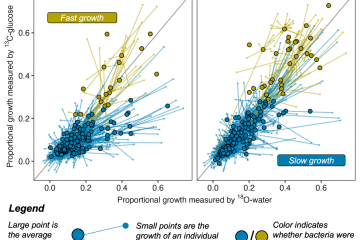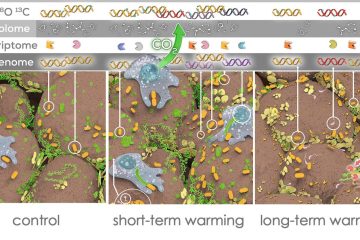Bacterial carbon use plasticity, phylogenetic diversity and the priming of soil organic matter
Microorganisms perform most decomposition on Earth, mediating carbon (C) loss from ecosystems, and thereby influencing climate. Yet, how variation in the identity and composition of microbial communities influences ecosystem C balance is far from clear. Using quantitative stable isotope probing of DNA, we show how individual bacterial taxa influence soil C cycling following the addition of labile C (glucose). Specifically, we show that increased decomposition of soil C in response to added glucose (positive priming) occurs as a phylogenetically diverse group of taxa, accounting for a large proportion of the bacterial community, shift toward additional soil C use for growth. Our findings suggest that many microbial taxa exhibit C use plasticity, as most taxa altered their use of glucose and soil organic matter depending upon environmental conditions. In contrast, bacteria that exhibit other responses to glucose (reduced growth or reliance on glucose for additional growth) clustered strongly by phylogeny. These results suggest that positive priming is likely the prototypical response of bacteria to sustained labile C addition, consistent with the widespread occurrence of the positive priming effect in nature.


